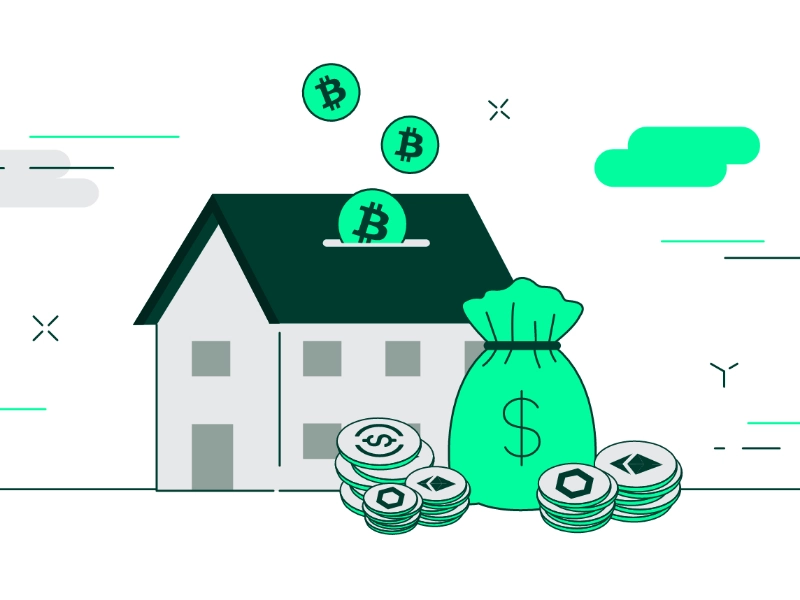Home Equity Loan Types: Credit Lines and Home Equity Loans
Fixed interest rates and an upfront lump sum are typical features of home equity loans. For one-time costs like debt consolidation and major home improvements, they are a suitable choice. Lenders evaluate your credit history and your property in order to determine your eligibility for a home equity loan. Your income and amount of personal debt may also be examined.
Changing-rate HELOC

Fixed-rate Home Equity Loan
 A fixed interest rate and a lump sum of money are provided to borrowers by home equity loans. They can be used to pay for debt consolidation, college tuition, and home improvement projects like kitchen makeovers.
Higher credit scores are typically required for home equity loans than for HELOCs, meaning that those with stronger credit are more likely to be eligible for them. Additionally, their payback terms are usually longer—up to 30 years.
While paying off debt with home equity can help with short-term issues, it can also cause longer-term issues by perpetuating a never-ending cycle of borrowing and spending. Make a strategy for how you'll pay back what you borrow and fix the spending habits that initially caused your debt before determining whether or not to use your home equity. If not, you will eventually have to deal with foreclosure. This is a far more catastrophic outcome than merely accruing credit card debt.
A fixed interest rate and a lump sum of money are provided to borrowers by home equity loans. They can be used to pay for debt consolidation, college tuition, and home improvement projects like kitchen makeovers.
Higher credit scores are typically required for home equity loans than for HELOCs, meaning that those with stronger credit are more likely to be eligible for them. Additionally, their payback terms are usually longer—up to 30 years.
While paying off debt with home equity can help with short-term issues, it can also cause longer-term issues by perpetuating a never-ending cycle of borrowing and spending. Make a strategy for how you'll pay back what you borrow and fix the spending habits that initially caused your debt before determining whether or not to use your home equity. If not, you will eventually have to deal with foreclosure. This is a far more catastrophic outcome than merely accruing credit card debt.
Household equity loan
 Home equity loans, like second mortgages, offer a one-time payment amount with a fixed interest rate that is repaid in monthly installments. Usually, they are utilized for major purchases or debt consolidation.
The appraised value of your house is what lenders use to calculate the maximum loan amount. They take into account all aspects of your financial condition, such as your debt-to-income ratio and credit score.
HELOCs have a draw time, followed by a potentially 20-year repayment phase. During the payback term, you are still able to withdraw money, but you have to pay it back on schedule.
To keep good credit, home equity loan payments must be made on time, just like other bills. Your lender may foreclose on your home and seize possession of it if you don't make payments. The interest paid on a home equity loan is deductible from your income taxes, unlike debt that is not secured. Examine the many providers of home equity loans. Their maximum CLTV, closing costs, application procedure, minimum credit score, and need for an evaluation were among the factors our evaluators considered while assessing them.
Home equity loans, like second mortgages, offer a one-time payment amount with a fixed interest rate that is repaid in monthly installments. Usually, they are utilized for major purchases or debt consolidation.
The appraised value of your house is what lenders use to calculate the maximum loan amount. They take into account all aspects of your financial condition, such as your debt-to-income ratio and credit score.
HELOCs have a draw time, followed by a potentially 20-year repayment phase. During the payback term, you are still able to withdraw money, but you have to pay it back on schedule.
To keep good credit, home equity loan payments must be made on time, just like other bills. Your lender may foreclose on your home and seize possession of it if you don't make payments. The interest paid on a home equity loan is deductible from your income taxes, unlike debt that is not secured. Examine the many providers of home equity loans. Their maximum CLTV, closing costs, application procedure, minimum credit score, and need for an evaluation were among the factors our evaluators considered while assessing them.
Line of Credit for Home Equity
 For homeowners, home equity lines of credit can have many advantages. They may be tax deductible for amounts spent on certain home improvements, and they are frequently available at interest rates lower than those of credit cards or personal loans. But before selecting this kind of financing solution, it's crucial to think about your financial objectives and consult with a specialist.
A homeowner's current equity in their house is leveraged by both HELOCs and home equity loans. They fulfill various purposes and have different structures, though. Fixed interest rates are offered by home equity loans for the length of the loan term, along with an upfront lump-sum payment.
Home equity lines of credit have a structure similar to that of credit cards and let you borrow against the equity in your house as needed, making them helpful for sporadic spending. However, they might also have interest rates that are greater than those of home equity loans, and they need a sizable amount of equity to be eligible.
For homeowners, home equity lines of credit can have many advantages. They may be tax deductible for amounts spent on certain home improvements, and they are frequently available at interest rates lower than those of credit cards or personal loans. But before selecting this kind of financing solution, it's crucial to think about your financial objectives and consult with a specialist.
A homeowner's current equity in their house is leveraged by both HELOCs and home equity loans. They fulfill various purposes and have different structures, though. Fixed interest rates are offered by home equity loans for the length of the loan term, along with an upfront lump-sum payment.
Home equity lines of credit have a structure similar to that of credit cards and let you borrow against the equity in your house as needed, making them helpful for sporadic spending. However, they might also have interest rates that are greater than those of home equity loans, and they need a sizable amount of equity to be eligible.








